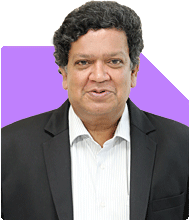Gaurav Pawar |21 Answers |Ask -Follow
Personal Trainer, Nutritionist - Answered on Jan 18, 2023
He is the founder and CEO of It's All About Journey, a company he created in 2017. It offers a comprehensive fitness programme that blends the principles of diet, workout and mindset to encourage a healthy mind, heart and body.... more

Hi Gaurav I am 28 and exercise 4-5 times a week. Two days ago my resting heart rate was 105-110. I panicked and called the paramedics. They checked and told me blood sugar, oxygen is normal. Heart rate is high because I panicked. The whole night I couldn’t sleep and my heart rate was between 80-100. Is this normal? Why does it happen?
You may like to see similar questions and answers below
Vaibbhav Patil |8 Answers |Ask -Follow
Physiotherapist, Strength Coach - Answered on May 23, 2023
Dr Ashit Hegde |180 Answers |Ask -Follow
Consultant Physician, Internal Medicine and Critical Care Expert - Answered on May 30, 2023
Dr Karthiyayini Mahadevan |678 Answers |Ask -Follow
General Physician - Answered on May 28, 2023
Dr Karthiyayini Mahadevan |678 Answers |Ask -Follow
General Physician - Answered on Jan 02, 2024
Ramalingam Kalirajan |468 Answers |Ask -Follow
Mutual Funds, Financial Planning Expert - Answered on Apr 16, 2024
Ramalingam Kalirajan |468 Answers |Ask -Follow
Mutual Funds, Financial Planning Expert - Answered on Apr 16, 2024
Ramalingam Kalirajan |468 Answers |Ask -Follow
Mutual Funds, Financial Planning Expert - Answered on Apr 16, 2024
Ramalingam Kalirajan |468 Answers |Ask -Follow
Mutual Funds, Financial Planning Expert - Answered on Apr 16, 2024
Ramalingam Kalirajan |468 Answers |Ask -Follow
Mutual Funds, Financial Planning Expert - Answered on Apr 16, 2024
Ramalingam Kalirajan |468 Answers |Ask -Follow
Mutual Funds, Financial Planning Expert - Answered on Apr 16, 2024
Ramalingam Kalirajan |468 Answers |Ask -Follow
Mutual Funds, Financial Planning Expert - Answered on Apr 16, 2024
R P Yadav |284 Answers |Ask -Follow
HR, Workspace Expert - Answered on Apr 16, 2024
R P Yadav |284 Answers |Ask -Follow
HR, Workspace Expert - Answered on Apr 16, 2024
R P Yadav |284 Answers |Ask -Follow
HR, Workspace Expert - Answered on Apr 16, 2024






















.jpg)



